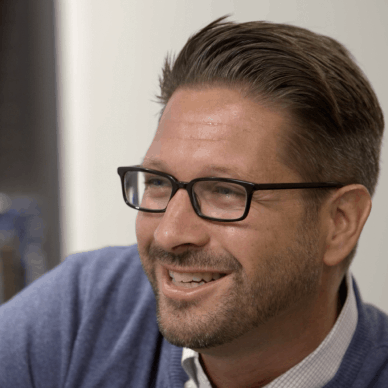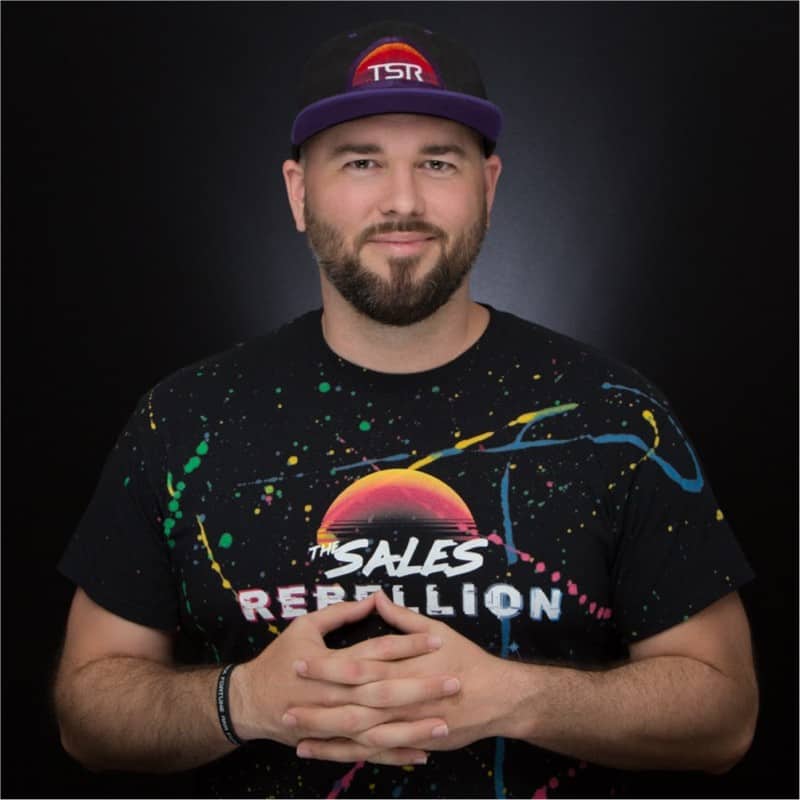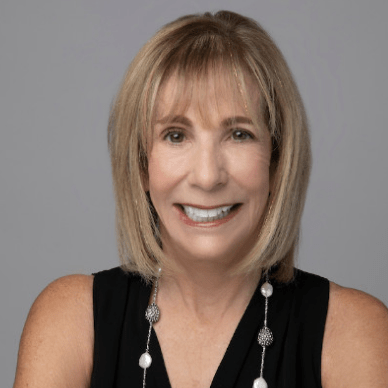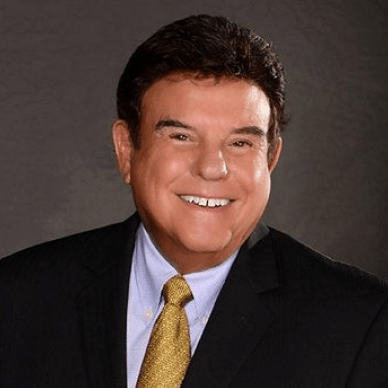We’ve come through a year of sudden change and extensive adaptation.
Technology now mediates our work and life experiences almost completely, and as a result, selling and buying have changed dramatically.
The skills and strategies that drove sales pre-2020 are no longer reliable, and the transition to this new era of selling was less than smooth for many organizations. Now, it’s time to reflect on how foundational sales paradigms have changed in order to determine which direction to go to best meet buyers’ new needs and expectations.
Which sales paradigms of the past have shifted? Which have been completely broken, and what new paradigms have risen to take their place? We asked leading figures in sales to weigh in with their experiences and expertise.
The majority of paradigms have been shifted, and some of them have really shattered.
High volume email prospecting? Shattered.
Mass outreach has always been suboptimal, but during Covid, the return has really dropped off. The buyer cortex is all over the place now that people’s work routines have been shaken up. People don’t have time or interest to spend on generic, unpersonalized show up and throw up.
To the extent that your market allows, shifting towards personalized outreach based on deep discovery will pay off.
We can reasonably assume that everyone’s ICPs and CVPs have shifted.
If your ICP and CVP are the same today as pre-Covid, it’s definitely time to re-establish your personas and re-codify your optimal message. If you have been keeping your ICP and CVP up to date, now that we’re at the turn of the year it’s anyway a great time to check back in and see how they’re performing.
It’s important to really get out of your established frameworks for this one. Take a step back and really challenge everything about your go-to-market strategy. Covid has had a varying impact for different regions, industries, and buyers, so there’s no blanket rule for “how buyers have changed”. You really have to dive in and find out where your buyers are, what their needs are, and what messages they’re responding to now.
Another paradigm that has shattered is the peripheral aspects of selling in person.
Before everything became scheduled 20-60 minute Zoom calls, we had to walk to meetings, and after a meeting we would grab a coffee or dinner with prospects. Any experienced seller will tell you that those informal, no-agenda moments often ended up bringing big value. Either they helped to close the deal, brought in vital information, or established relationships that became valuable later on. Now those moments are gone.The very best sellers are already designing those moments, making sure that they’re built in. “Can we put in 20 minutes just to have a coffee and catch up?” Just ask, explain that it’s off the record, and keep it human.
Virtual selling, which is seen by most people as new in 2020, created a lot of panic in the sales profession. However, it is not entirely new. Virtual selling is just inside sales “on steroids.” What is new is the level of respect sales management has for inside salespeople. No longer is this job considered merely a junior-level sales role. Executives now recognize that effective virtual selling requires a specialized skill set and tools to deliver the desired results.
Virtual selling began as a necessity, but it has quickly become recognized as an effective selling strategy. It has been proven to increase sales productivity by eliminating travel, which also reduces the cost of sale. Sales managers, if they haven’t already done so, need to refine their new client acquisition process to accommodate for a virtual selling environment. Each step of the process needs to be tailored to the buyer’s new way of evaluating solutions and making purchasing decisions.
Buyers have also come to appreciate the efficiencies afforded through virtual selling. Many now say they prefer that type of interaction rather than having meetings in-person. They feel these meetings are more productive and effective. These meetings have a fixed start and end time making it easier for them to plan their days. Technology advances allows them to share documents and complete contracts without an in-person interaction.
If you have not yet adjusted your selling approach because you think virtual selling is a fad, you may want to reconsider. Virtual selling is here to stay.
The paradigm has shifted but has not been shattered.
Buyers have had to go digital to continue doing their job which has made them more accepting of this type of interaction. To accommodate this, sales teams accelerated their push to adopt technologies that accommodate buyers needs while also taking advantage of the additional capabilities these tools offer.
As COVID fades and things go back to normal, buyers will start to shift back to the way things were but will not move all the way back. Instead, they will continue to leverage the digital tools they are now comfortable with and use traditional approaches where it is valuable for them.
Nothing new is going on yet. We are seeing an acceleration of what was already in place. With this increased adoption, we can expect to see new technologies that may have been years out get pulled in and released earlier to those companies with digitally savvy sales teams.
The sales paradigm has shifted not shattered. This is how I feel about sales and how we are still treated.
So until the day comes when we are treated as equals, we have work to do.
Companies still badger reps on worthless metrics, and micro manage with 100s of slack messages a day.
CEOs still throw out VPs of Sales like last night leftovers after 12-18 months despite broken products, zero marketing, and poor onboarding experiences.
So don’t tell me its shattered…its shifting, not shattered
There are those of us who are dedicating our craft and our time to being a part of this revolution, and we know the work is far from over.
Has the sales paradigm shifted this year, or did we just watch it shatter completely? Is there anything new going on?
2020 was a catastrophic year for some and a tremendously successful year for others. The difference, and the hidden lessons for us in sales, are about adaptation, nuance, and focus.
Adaptation and Nuance
“All failure is failure to adapt, all success is successful adaptation.”
~ Max McKeown, author of “Adaptability: The Art of Winning in an Age of Uncertainty”One of the challenges with the sales profession in general and the current “sales paradigm” is that there isn’t really just one profession or paradigm. When you get down to the nuances, selling a life insurance policy, a vehicle fleet maintenance agreement, a commercial air filtration system, or an ERP software system have as many differences as similarities. This variance is a reality that many sales gurus do not address—nuance and context matter much.
The key phrases tossed around in the sales profession due to the pandemic were virtual selling and digital selling. The heavy focus on these is misplaced. Digital is just another channel to the customer.
Software is just another tool. Do we need to master channels and tools? Yes, we do, and I don’t argue against that. But the channel and tools alone are not going to make you a better seller. What happens when you reach the customer digitally or have a virtual meeting? What we truly need is an increased focus on the foundations and fundamentals of selling.
Focus
Selling is simply:
The act of finding people who have challenges we can resolve or opportunities we can enable…
Who see the challenges or opportunities as compelling enough to address because doing so will achieve an outcome that matters more than the TERM of the solution (time, energy, resources, money) and the pain of change…
And who have the means to invest to achieve the desired outcomes.To me, this is the paradigm that matters more than channels and tools. The other paradigm shift that matters to me, which is especially important in difficult times, is the massive transformation from seller-centric to buyer-centric behavior. This would do more to improve sales effectiveness than anything else.
What’s New
As a buyer, I am inundated daily with a barrage of horrible, generic, product-focused, and seller-centric sales pitches in email and LinkedIn InMail (and occasionally by phone). These flawed prospecting approaches have increased dramatically during the pandemic. Now, I’m receiving daily LinkedIn invites that include pitches as part of the invite. That’s a first in 2020. When I poke into these with the senders, I find that many of these messages are automated.
Aside from the poor use of automation and targeting, the approaches that are potentially right for me are not researched or personalized, use disingenuous “techniques,” false and generic empathy statements, and are incredibly product-focused and seller-centric.
I think there are a lot of salespeople out there that are hitting quota because they can draft behind their company’s brand. They effectively act like a retail storefront. When a buyer is interested in buying something, they will do the transaction. There is nothing wrong with this. Being very knowledgeable about your company’s products and services is still valuable as long as the products and services your company offers are valuable.
So where does that leave us for 2021? I think that there are going to be a lot of salespeople pounding their chests talking about how great they are, when they are really doing nothing more than picking good companies to work for, with good offerings that are hot in the market. If you’re in a good part of the economy, you’re probably going to win. Does that mean you’re a good salesperson?
And this is what brings me to my potentially contrarian point of view. I don’t think there’s anything new in 2021. I don’t think anything will really change in 2021 when it comes to sales. I think it’s going to be the same patterns in a different year. The global economy is a deck of cards that just got shuffled. But the cards in the deck are still the same.
This is my depressing or pragmatic point of view depending on how you look at it. Picking a good horse is more important than being the best jockey. In other words, the salesperson who is average, but has a really hot offering will inevitably do better in their career than the salesperson that is really skilled but works for companies that don’t take off.
And this brings me to my advice. If you really want to change the paradigm of your lifetime earnings as a salesperson, you need to get unbelievably serious about your craft. That means you read books, talk about sales, breathe sales, sleep sales because you actually enjoy it. That’s how you get to a $250,000 a year job. Otherwise, you’re just going to be in obscurity.
The shifts we’ve seen in the past 12 months shouldn’t be a surprise. Many have been happening gradually, and it took the pandemic (and temporary shut-down of in-person channels) to make some of those moves “suddenly”. We’ve seen a migration to inside sales from field sales, as well as an increasing shift to inside sales for years now. And the adoption of remote/digital selling tools has been happening for years as well. All that said, there’s no question we will go back to a wide variety of face-to-face selling motions once the pandemic risk is mitigated.
Central to these shifts and a follow-up recalibration is going to be answering one question–what does the customer need?
I wish it had shattered completely, but it has definitely shifted.
The buying team has a more complicated job than ever and it is extremely hard to get their attention. There is more scrutiny on every purchase.
More cold outreach is not the answer.
People need solutions. In my world, complex solutions. They need it to be easy to buy those solutions.
Here’s what we need to see.
1. Companies taking a creative approach to reach those who have the potential to buy. Instead of meaningless cold outreach, try getting an introduction. If you can’t get an introduction, try sending something unusual or holding an event but inviting only the key people you want to reach.
1. Sales leaders need to be in charge of SALES not just SELLERS. Being in charge of sales means focusing on how the buyer wants to buy and making that possible. According to Gartner, for about 50% of B2B buyers that means completing most or all of the buyer journey without having to talk to a salesperson. Impossible, you say. Today, for many complex B2B sales it is and it may remain that way, but there are many things that can be done to facilitate buying that don’t include a salesperson.
2. Sellers adding value. Sellers who don’t add anything meaningful to the process are the reason B2B buyers want to make the purchase without them. Adding value is bringing insight, asking questions to help the prospect thoroughly understand their problem and the possible solutions. This means they need to be more collaborative and they should make the sale completely transparent. Using a Mutual Action Plan – MAP. They can map the buying process and buyers and sellers are then aware of the steps to move forward and can commit to those steps, who will take them, and by when.
What’s new: changing the way we approach buyers. Being less transactional and more human. Caring more. Solving. Making a difference. True salespeople are there to solve a problem and make the world a little easier for the people who need their solution. It doesn’t sound that new, good salespeople have always done that. Let’s shift so everyone is doing it.
The sales Paradigm has been completely turned on its head. In 50 years, there has never been more openness to remote work. Sales managers have been forced to re-engineer both the process and the methodology. Quotas and territories have been redrawn. Products have migrated to services and everything is becoming SaaS.
The attempt to shift the industry has resulted in a complete shattering of the egg. Verticals like e-commerce and cybersecurity are on fire and new leadership has been forced to embrace remote work which has only increased productivity. As Satya Nadella put it best, we have seen two years of digital transformation in 2 months.
The ability to apply artificial intelligence and machine learning in realistic and tangible ways is a huge sea change. Applications of these Technologies for Predictive Analytics: guided selling, coaching, and automation are on fire because the price of these technologies has come down to a level where everyone can afford them.
Opening is the new closing. Landing meetings is harder than ever and so the position of sales development rep is starting to finally get the kind of respect that it deserves.
Sales and marketing have to become even more closely aligned to cater to a fully-remote customer base with a nonlinear sales cycle.
Review sites and user-generated content feedback is the new gold standard for buyers.
Let’s talk about it on a couple layers.
The first layer is “How we sell”.
Traditionally, it’s been very focused on the salesperson. It’s all about me and my product. Now, B2B is becoming more like B2C where it’s about the consumer, value benefits, and the challenges they’re going through. You have to accommodate that. Consumers completely don’t care about my product, my company name, awards, or accolades. What they care about is if they can self-identify with my message. “Does this sound familiar? Are you struggling with ABC, XYZ?” And I think a lot of people are starting to push more towards that. We want to self-identify, we kind of want to self-educate before we even talk to a salesperson. And so those that build their copy that way, I think are going to do a lot better.
The next layer is tools and technologies.
There was this firm belief that you couldn’t have remote BDRs, everything would fall apart. Covid disproved that. Now we’re decentralizing the power within the sales community and giving it back to the individual performers with remote work, because they’re not able to go into the office and won’t be for the foreseeable future.
So that brings different challenges. How do you motivate a remote team? How do you make sure everyone’s doing the things they need to do?
On the other hand, people are working harder to the point of burnout. Work/life balance and work/life separation doesn’t exist anymore. People go from one room to another, or sometimes are living and working in the same room. So now we’re having to look at the employee holistically, give them more time off, talk to them and train them like a full human.
Beyond that, artificial intelligence and machine learning are popping up. These tools can help us move faster if it’s done well. Most people still don’t understand how to execute on the strategy of these platforms though, and the machine learning is not that advanced yet. What it will really show is who is tech-savvy and who knows how to leverage technology. They’re going to get the competitive advantage in this landscape. Those that don’t know how to leverage the technology are going to fall behind.
If nothing else, what Covid taught us from a rep-performance perspective is who’s lazy and who’s really gonna dig in. Yes, it’s gotten harder to buy things, yes, the cycles are more challenging, more scrutiny, etc. So, the sales reps that were lazy are going to fall by the wayside. The gap between the top 10% and the rest will only continue to grow. If the people in the middle don’t put in the effort, they’re going to fall to the bottom.
Lastly, customers are getting smarter, they have more access to reviews and other information, so they can see through a lot more bullshit. They can understand what’s going on, down to the company culture that you’re selling from. That’s going to force people to build better companies, to build better product. If it’s a shitty product, people are gonna know about it, you can’t cover it up like you used to.
I think the sales paradigm was already shifting prior to 2020. However, being placed under house arrest for the better part of a year seems to have accelerated a number of changes that were already underway.
We’re finally starting to break free of the ‘Always Be Closing’, selfish stereotypes that have been the reputation of sales for decades. Having interviewed over 100 of the best-performing individual contributors on my Sales Success Stories podcast, I can tell you definitively that the very best sales professionals also happen to be some of the very best humans. They’re servant leaders who care about their customers and their outcomes. They work constantly to better themselves and better their customer’s or prospect’s experiences. They constantly search to find the right way to balance what Carson Heady calls the “Holy Sales Trinity,” which is the best interest of your customer, your company, and yourself.
I just think that we watched the sales world shatter into a million pieces because we have been “doing it this way for years” instead of innovating our outreach, thinking outside the box, relating to people, building familiarity and relevance with our prospects, etc…
We dehumanized sales for long enough. Once we needed to “be human” again, it was exposed like a gaping wound. The pandemic was a blessing in my eyes. We got more time with our families, more time pondering what truly matters, and the ability to understand that we have been tricked into thinking that somehow “sales” is some kind of robotic process that will always give us an outcome if we “follow these 5 steps” – not the case.
In 2021 Rebels will be even more successful than they have ever been because of this. Rebels did not suffer during 2020, because they have always lead with their heart and the true instincts of a successful salesperson. They put people before products, community before commission checks, experiences over performing pitches, and fellowship over negotiations.
We learned this year:
It is possible to sell high, medium, and low ticket products and services without a face-to-face, on-site meeting.
Not every sales person is capable of selling remotely and that’s okay. First give those who struggled to make the shift extra coaching, training, and attention. If you have truly given these sellers the right tools and coaching and it still doesn’t work, help with career re-direction.
Organizations and managers need to be flexible with their rep’s schedules. The strict show up at the office world of 9 – 5 doesn’t work with schools closed and family to attend to. Good reps will manage their time differently and still continue to deliver results.
Imagine this… coaching and training are now officially deemed important. It took a pandemic to recognize how important on-going coaching and skill building is to everyone’s success. You’d think after watching sports for so many years sales managers would have figured out long ago daily skill and mindset training get you to the Superbowl, World Series and Stanley Cup Playoffs.
2020 accelerated trends in sales by five to ten years, minimum. Moving to more of an inside sales model – we proved you can close multi-million dollars without face-to-face.
We will continue to see field teams shrink and Inside groups grow. The digital sales experience – we are now forced to learn how to engage and grow meaningful relationships digitally. So, we better know how to get active on LinkedIn and other platforms to meet buyers where they are, digitally.
The ability to establish an online reputation is now required. No more shaking hands at tradeshows; it’s all about digital engagement in 2021 and beyond.
I don’t know if it’s about the sales paradigms shifting or shattering completely. What I believe 2020 really did was it exposed a lot of weaknesses in reps and sales organizations that were built up over the last eight or nine years in a bull market. From businesses to individual reps, people were able to have success simply because the market was going well, people were confident, and there were a lot of buyers out there.
What I saw happening over the last decade or so was a big focus on automated tools and sequences, but all those things don’t necessarily guarantee success. A lot of companies started to just hire whomever and give them these sales stacks and say, “Okay. Go get ‘em!”
They’d have some success, they’d send out thousands of emails, get a percentage that would convert to closed customers and they’d be happy. They’re like, “Great, we’re building business, we’re getting revenue, so this is all great.” But it was very much a volume-driven game and you ended up burning and putting a bad taste in many potential buyers’ mouths and that’s not a good thing to do. It was just a bull market and people didn’t have to worry about the pipeline drying up.
But because it was working, a lot of reps and companies were able to get by without systems in place to develop good fundamental skills for the salespeople. Once the market dropped when COVID hit in 2020, all those things stopped working.Now, there are a lot of reps that never developed core fundamental skills, such as:
- How do I have a real conversation?
- How do I truly connect?
- How do I truly empathize?
- How do I ask questions?
- How do I engage a prospect?
- How do I navigate a sales process?
When there are less potential buyers in the market, there’s a shift in mindset. Most importantly, how do you go and create new markets? If you were selling to a specific vertical that suddenly got decimated by Covid, if you’re not able to find new markets, suddenly you’re struggling.
Now, many reps have no idea how to go about building and creating new territory from scratch, how to generate new markets, how to get in front of new prospects, and build new pipeline. It’s really exposed them all, the reps and the companies. If they do not have fundamental skills in place to generate new business and nurture appropriately, in a personalized way, then eventually that business will fail, and we’re seeing that across the board.
It’s not about a shift in paradigm. Beneath that good bull market, this has always been there. At the end of the day, fundamentals in sales never go out of style, they’re always relevant.
It’s time to quit thinking you know how the year is going to go. The key to today and the key to tomorrow is flexibility!
Who thought at the start of 2020 that the year would turn out the way it did? Who believed that all we had to do was turn the calendar to 2021 and life would change.
We’re in a transitory state and there’s nobody who has it figured out.
One of the few things that has changed is geography. If anyone thought they had a superior advantage because of geographic location, that’s gone. The only geographic location that matters now is how you appear on the internet and how easily people can find you. We now have both customers and competitors worldwide. We must both think and act globally in everything we do.
In an internet-fed, global world, the need to create authenticity and transparency in everything is essential. More than ever, the value of our relationships and network matters. I’ll take investments in others over investments in apps and hacks. There isn’t an app out there that can be the secret solution for the year ahead. The solution will be found in learning from others on a daily basis and being able to filter the learning to make the best decision.
At the start of the pandemic, I saw a doubling down of the same old strategies. Then came the cold winter (spring, summer and fall). Why was it cold? No one was hiring. We at UT Dallas would know; we get hundreds of calls each year to hire our talented students, but our phone didn’t ring till Q1 of 2021.
Here’s what we know: Buyers changed, whole markets changed, sales calls went virtual, and we reduced U.S. sales headcount by 10% over the past seven months. The real question: Is this the tipping point? Or is this just a pause in the manic investment we have seen in sales and sales technology over the past decade?
We are truly at an inflection point, but where this is leading is still not clear. The manic investment in and deployment of SDRs, sales enablement, training and technology has neither made economic sense nor paid off for many organizations. The modern buyer arrived before 2020; will the modern selling organization arrive in 2021?
I would have to say that the sales paradigm did shift in 2020, but not as much as some would think. In many industries, I’m hearing reports of business as usual or even better. The pandemic forced many who had “someday” plans to go ahead with them and launch their new businesses or innovative ideas. It forced others to re-analyze literally every expense of doing business—and improve. I’m seeing 2020 as more of a “reset” year than anything else.
I believe the broader adoption of online methods of meeting with others has spurred faster advancements in that type of technology—for the betterment of all. I am excited for future advancements that provide greater ease of doing business globally.

















